Israel welcomed 400 young leaders from 34 countries to the 2022 Forbes Under 30 Summit EMEA (Europe, the Middle East, and Africa), a four-day event hosted by US business magazine Forbes, in Jerusalem and Tel Aviv this week to foster entrepreneurship, social impact, and environmental change worldwide.
On Wednesday, Israeli-founded global venture capital firm Jerusalem Venture Partners (JVP) hosted the leaders — alongside several Palestinian and Israeli startups and entrepreneurs — at the Margalit Startup City headquarters in Jerusalem. The event included several meetings for attendees to discuss ideas and innovation, with the ultimate goal of building bridges through business, technology, and understanding.
The event, called “The Power of Yalla: 10 Ideas That Will Change The Middle East,” was designed to “create social and business impact between the participants and the Israeli – Arab – Palestinian Tech ecosystem,” JVP said in a statement.
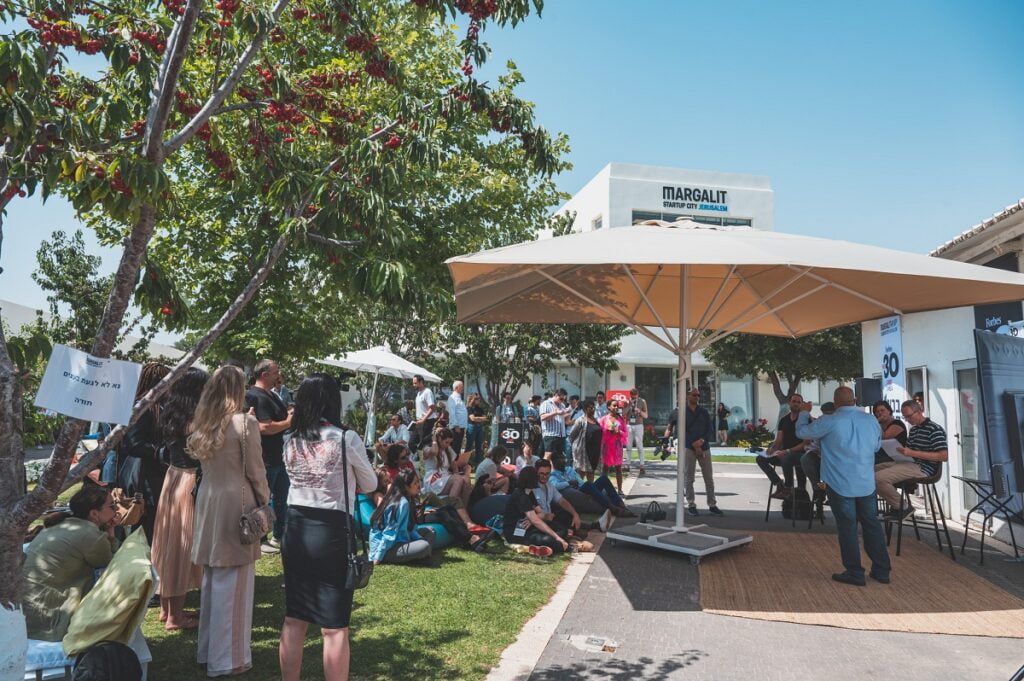
JVP Founder and Executive Chairman Erel Margalit spoke to NoCamels about the event’s namesake, “Yalla.” A term in Arabic and Hebrew meaning “let’s go”, Yalla emphasizes JVP’s desire to bring entrepreneurial innovation to the entire Middle East region. As the company prepares to collaborate with Saudi Arabia, Lebanon, and Egypt (among other nations), the Wednesday conference aimed to propel a spirit of cooperation in business technology.
“These people are the ambassadors of change. And Forbes has been a great partner for us. You know, the Abraham Accord didn’t come from nothing, it came from the act of many entrepreneurs like ourselves in cooperation with Forbes, in collaboration with many companies, that show people that we can work together before the politicians understood,” Margalit tells NoCamels.
Split into 10 teams, the event attendees worked with Israeli startups in a range of fields to address different challenges facing the Middle East. Like a focus group, they came together to form a narrative, and find ways to promote their key messages. The last part of the day showcased the 10 projects and startups in two-minute pitches that highlighted the purpose of their companies.
One startup, Bakehila, founded by Shai Winkler and Mohamad Nijam, aims to break the cycle of poverty in underprivileged communities, particularly with the 261,000 at-risk youth in Israel across three different religious communities, by offering volunteers to teach language, math, and social skills at 15 educational centers throughout the country. Another startup, Greeners, uses CO2 emissions to create eco-friendly sustainable fertilizers through a patented formula to reshape the current agriculture. The company co-founded by Lina Zahakya, current CEO, Noor Daraghmeh, current COO, and Haytham Sharabati, current CFO, targets farmers and home growers in Palestine but aims to eventually make the company global. Other startups include Flare Studios, the company creating a fully-automated production studio for gamers, and Olive Branch Pictures, the company creating the first Disney princess movie showcasing the Israeli-Palestinian conflict.
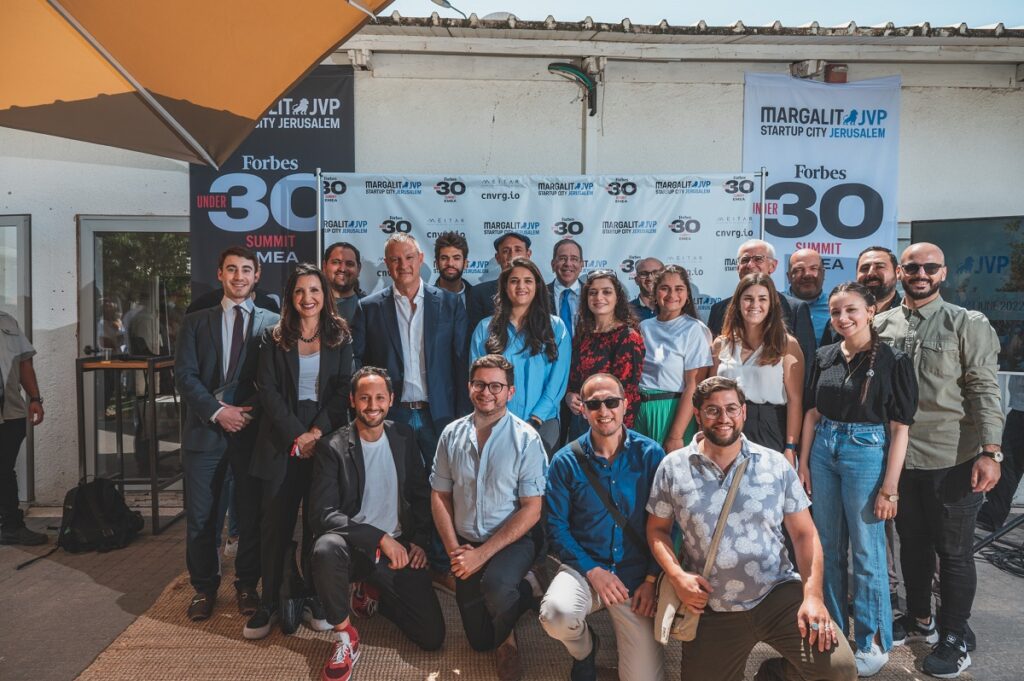
The startups were brought to the event under the auspices of seven organizations that support them including 50:50 Startups, a global accelerator that brings together Israeli Arabs, Jews, and Palestinians to develop joint and equally-owned tech startups; Tech2Peace, a joint Israeli-Palestinian NGO that hosts workshops for Palestinians and Israelis; Palestinian Internship Program, the organization that connects the Israeli and Palestinian high-tech ecosystems through professional development opportunities; DANA Venture Builder, a venture builder and investment platform for women-led startups from MENA; PresenTense, an Israeli organization promoting underrepresented entrepreneurs; Takwin, a venture capital fund and incubator for early-stage investments in hi-tech & technology companies run by Arab entrepreneurs in Israel; and Margalit Startup City Community – Bakehila, the educational NGO that brings academic and social opportunities to elementary and high school students in Jewish and Arab communities.
Innovation across borders
While the conference brought startups, organizations, and global participants together to share ideas and forge collaborative change, the event in Jerusalem also served as a means of bringing people together to build bridges through innovation.
“If innovation can change a city, it can change a country. It can change a region,” said Margalit said in the event’s opening remarks.
Anna Gol-Dekel, executive director for the Palestinian Internship Program (PIP) and the Palestinian Mentorship Program (PMP), uses innovation as a bridge for Israeli and Palestinian entrepreneurial talent. The non-profit aims to build a “pipeline of professional development and entrepreneurial success” by connecting young Palestinian professionals with high-level internships and mentorships.
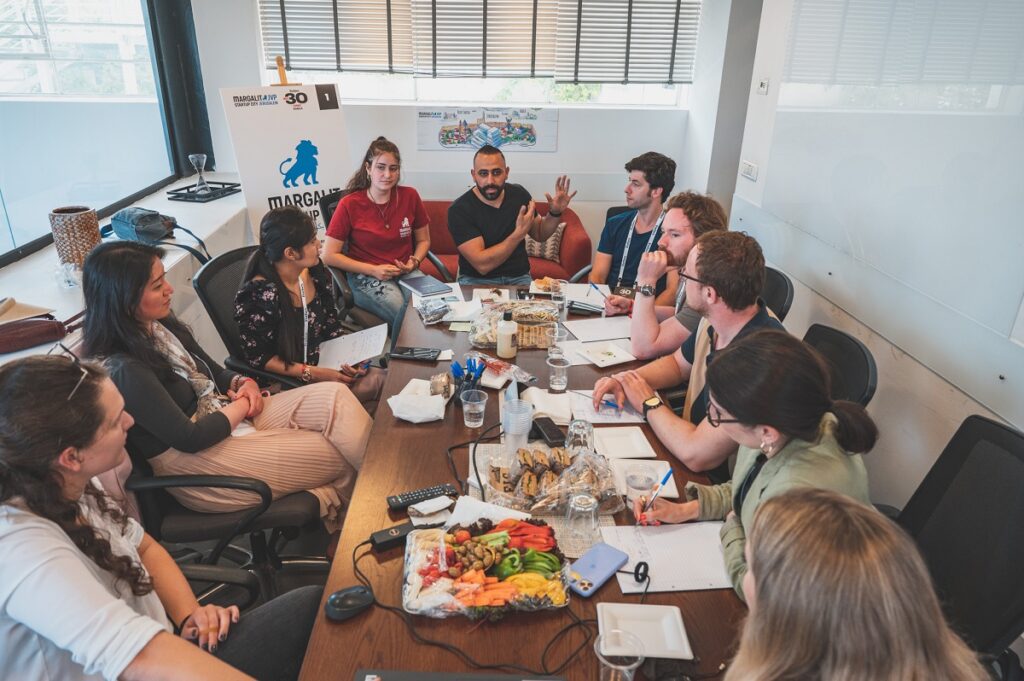
“Israel and Palestine are neighbors. In the way that Israel utilized the diaspora in order to become the startup nation, Israel is able to offer Palestine support to build its own startup nation,” Gol-Dekel said early on in the conference.
Such collaboration relies on a network of people – a network Gol-Dekel witnessed at the JVP event. Coming together in Jerusalem, the diverse group of innovators could learn from – and about – one another.
“We have people from all over the world — I was actually shocked but people from all different countries are here — and, I mean none of them are very familiar with the reality on the ground for a Palestinian business person. And I think that it was very eye-opening for so many people that there is opportunity,” Gol-Dekel told NoCamels after a group session.
Sign up for our free weekly newsletter
SubscribeThe strength of cooperation among a diverse group of businesspeople in high-tech industries was an idea shared by many organizations at the Forbes Under 30 Summit. Tomer Cohen, the founder and strategic partnerships director of Tech2Peace, spoke about the potential of startups with diverse leadership.
“In most of the cases, the sharpest ideas are the startups that are the most diverse ones. And this is not a coincidence because we know once we bring in a very diverse team, the results are definitely better rather than a very similar group of people,” he said.
Cohen’s organization hosts two-week-long high-tech, dialogue, and entrepreneurship workshops for groups of 15 Palestinians and 15 Israelis working in fields of technology and innovation. With over 400 alumni, the program encourages long-term partnerships and startup skills through collaboration.
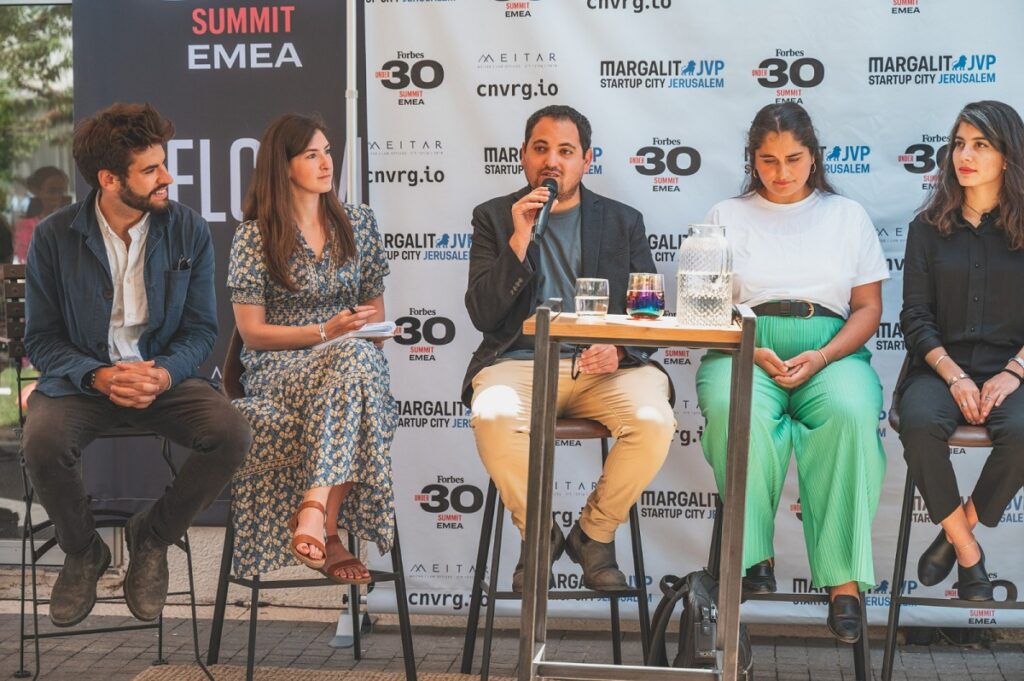
“If you want to raise a resilient generation of entrepreneurs, from both sides, which are working together, we need to learn technologies, we need to learn innovation. But also, do dialogue together,” Cohen told NoCamels at the event.
Zada Haj, an alum of Cohen’s Tech2Peace program and co-founder and chief executive officer of DANA Venture Builder, is a member of Forbes’ 2022 Israel 30 Under 30. Last year, she – alongside co-founders Shirley Shahar and Katie Waschberger – launched DANA aiming to bring women-led startups with innovative solutions to the MENA (the Middle East and North Africa) region. The venture capital firm aims to fund startups in the sectors of agritech, food security, waste management, water solutions, and renewable energy through “regional collaboration, innovative mentorship, impact community, and funding.” Her company and its startups – one of which attended the summit– were well aligned with the conference’s goals.
“We had this synergy of promoting values of coexistence, of regional collaboration, of local collaboration, and the environment, technology, and innovation. All these sectors are connecting us, JVP, and Forbes, promoting cultural innovation,” Haj tells NoCamels.
Haj underscored the power of problem-solving in uniting startups and entrepreneurs throughout the MENA region. The unifying problem of climate change, for example, could be a bridge, she told NoCamels.
“This summit is very important to show how innovation can bring people together and how, facing the same problems, sometimes is the solution to bringing people together. The climate crisis now is the solution for this region, to be in collaboration with each other instead of fighting each other. So it’s a mutual mission,” she said.
It is this mission that is inspiring Margalit and his team to look to the future of technology in the Middle East region.
Looking forward, Gol-Dekel emphasizes the critical importance of conferences like the Forbes Under 30 Summit to usher in change through the lens of high-tech teamwork.
“Let’s look beyond what is being shown on the news, let’s look beyond the fringe, and let’s see the hardworking individuals who are on the ground, working hard to make their dreams come true. And, I think that that’s what is happening here with entrepreneurs from 30 Under 30. All over the world, they’re seeing what the talent is and what the reality can be,” Gol-Dekel said.
Forbes, a media brand famous for its focus on “business, investing, technology, entrepreneurship, leadership, and lifestyle”, was excited to bring the event back to the world’s startup nation.
“Israel is one of the world’s most vibrant and creative entrepreneurial environments, and this coupled with the country’s rich culture, makes it an ideal location for Forbes to gather the world’s game-changers for four days of collaboration and inspirational dialogue, and to discuss how to shape a more positive future through the power of innovation and entrepreneurialism,” said Randall Lane, Forbes chief content officer.
Related posts

Editors’ & Readers’ Choice: 10 Favorite NoCamels Articles

Forward Facing: What Does The Future Hold For Israeli High-Tech?

Impact Innovation: Israeli Startups That Could Shape Our Future


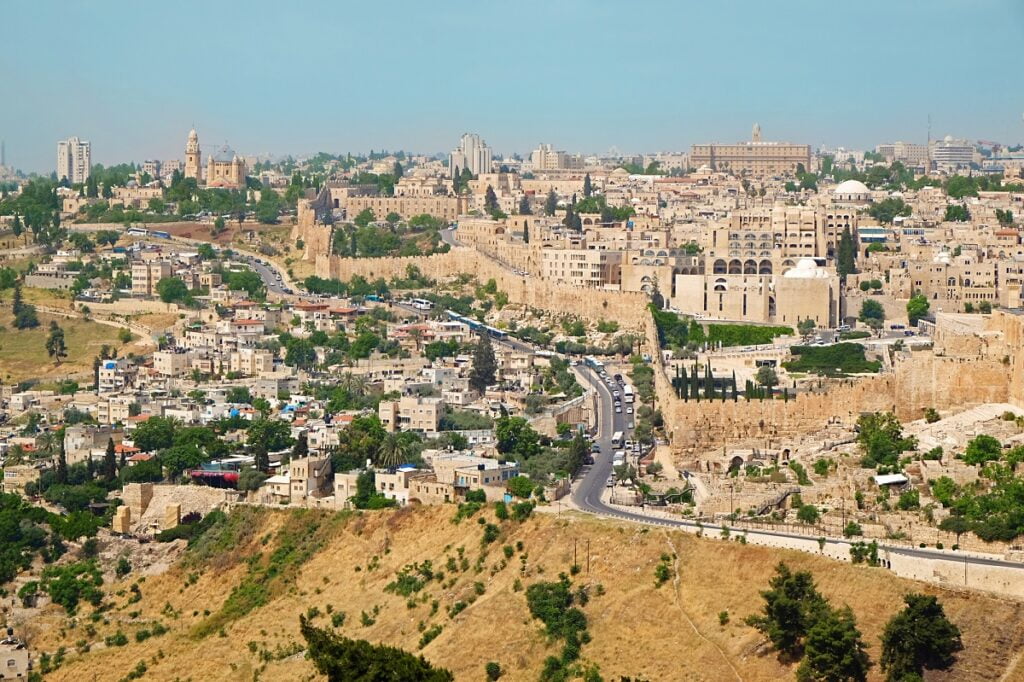

Facebook comments